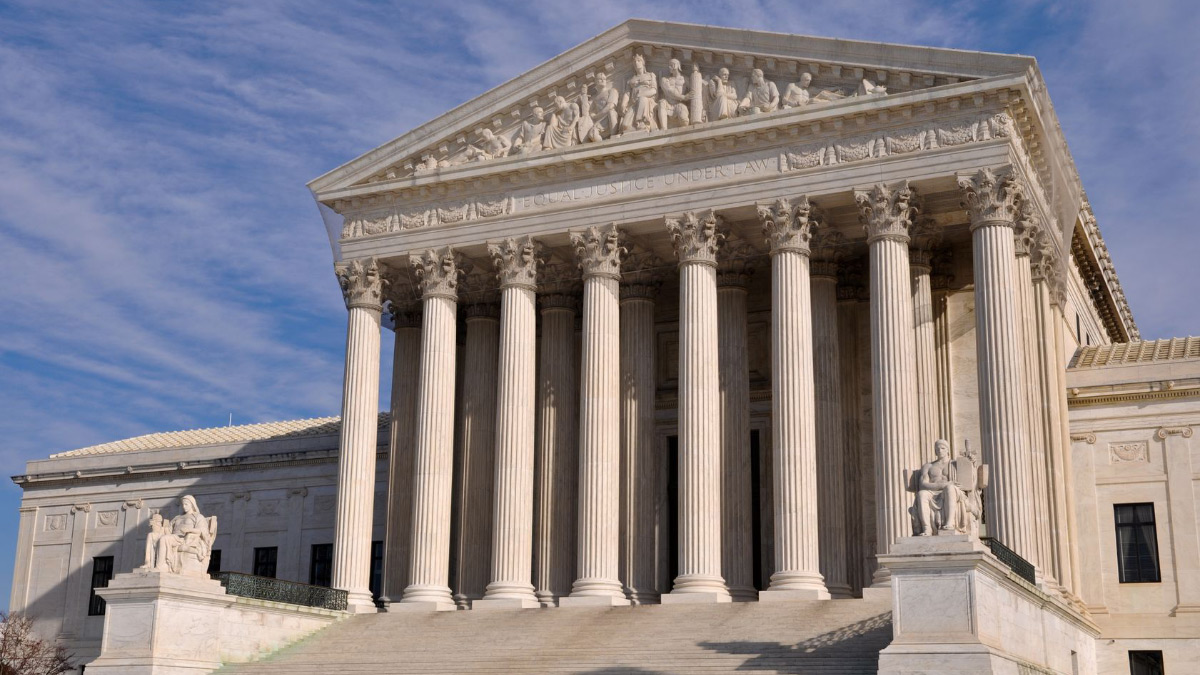Much like King Nebuchadnezzar’s instructions to the three Hebrew boys, Senator Chuck Schumer (D-N.Y.) has telegraphed to Judge Brett Kavanaugh a way out of the fiery furnace of confirmation. Kavanaugh need not bow down to a golden image, but he must give obeisance to Roe v. Wade, the 1973 landmark abortion case. “The onus is on the nominee,” Schumer has declared, “to show where he or she might stand” on Roe. Schumer says he will take an “affirmative statement of support” for Roe and nothing else.
Schumer is engaging in what lawyers call improper burden shifting. Kavanaugh’s education, public service, and experience on the Court of Appeals for the D.C. Circuit all counsel in favor of his qualification and speedy confirmation. Schumer seeks to ignore Kavanaugh’s pedigree and make fidelity to Roe the issue. But if Kavanaugh’s receipt of Democratic votes is contingent on his embrace of Roe, Schumer and his colleagues should bear the initial burden of demonstrating that Roe is congruent with our Constitution.
Roe is built on the shaky doctrine of substantive due process. The Due Process Clause of the Fourteenth Amendment provides that no state shall “deprive any person of life, liberty, or property without due process of law.” In Anglo-American legal history, due process traditionally refers to procedures an accused is entitled to in a court proceeding. Alexander Hamilton was clear about the scope of due process: “The words ‘due process’ have a precise technical import, and are only applicable to the process and proceedings of courts of justice; they can never be referred to an act of the legislature.”
Unfortunately, since at least the late 1800s, judges seeking to expand their powers have claimed that due process has a substantive component allowing them to review acts of legislatures for reasonableness. Reasonableness is too often synonymous with the judge’s personal likes and dislikes.
Using the Due Process Clause in Griswold v. Connecticut (1965), the Court held that certain “penumbras,” or shadow zones, from provisions of the Bill of Rights formed a right to privacy that allowed it to strike a Connecticut law banning contraceptives. Justice Potter Stewart in dissent agreed that the law was “uncommonly silly” but admonished that the justices’ job was to interpret the text of the Constitution.
Building on Griswold, the Court waded into the abortion controversy with Roe, an opinion written by Justice Harry Blackmun. Blackmun and six other justices struck down a Texas restriction on abortion as violative of due process and then crafted a trimester system governing abortion regulations. In the first trimester, the Court decreed, decisions regarding abortion must be left to the mother and her physician. During the second trimester, restrictions reasonably related to the mother’s health are permitted. Finally, once the fetus is viable, the state may regulate or prohibit abortion except when the procedure is necessary to preserve the life or health of the mother.
Roe is unabashedly a clear instance of judicial policymaking. While many Americans might find the Court’s framework reasonable for legislation, it is alien to the Constitution. The justices simply transferred their personal opinions to the realm of constitutional law. Instead of deferring to elected representatives, the Court made abortion the special province of the judicial branch.
Honest progressives have long recognized Roe’s faults. Edward Lazarus, who clerked for Blackmun and worked on Barack Obama’s first presidential campaign, has described Roe as “a jurisprudential nightmare”: Blackmun’s extension of the “unenumerated constitutional right to privacy to cover a woman’s choice to have an abortion required an analytical leap with little support in history or precedent.”
Harvard Law professor Laurence Tribe, who served as a judicial adviser to Obama, has observed: “One of the most curious things about Roe is that, behind its own verbal smokescreen, the substantive judgment on which it rests is nowhere to be found.“
Roe is a judicial fraud and usurpation. Schumer cannot prove otherwise and should not demand that Kavanaugh join in the constitutional charade of the High Court’s abortion jurisprudence. Schumer ought to remember that the three Hebrew boys came out of the fiery furnace with a stronger faith and that King Nebuchadnezzar suffered a seven-year bout of madness because of his folly.












